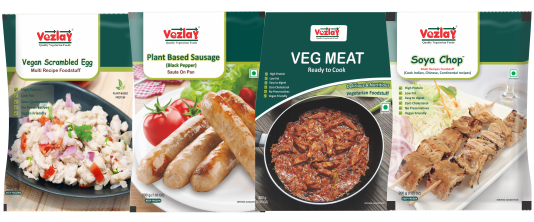In today’s culinary landscape, the choice between a vegetarian (veg) and non-vegetarian (non-veg) diet has become a significant topic of discussion. This article delves into the contrasting aspects of these two dietary preferences to help you make an informed decision.
The Essence of Vegetarianism
Vegetarianism: A Healthful Choice
Choosing a vegetarian diet primarily involves abstaining from meat, poultry, and fish. Instead, individuals following this dietary path focus on consuming plant-based foods. Here’s why some opt for this health-conscious lifestyle:
Promotes Heart Health: Studies have shown that a vegetarian diet can lower the risk of heart diseases due to its lower saturated fat content.
Weight Management: Vegetarians often maintain a healthier body weight, thanks to the reduced calorie intake from plant-based foods.
Reduced Environmental Impact: Many environmentalists favor vegetarianism as it typically has a lower carbon footprint compared to non-veg diets.
The World of Non-Vegetarianism
Non-Vegetarianism: Embracing Meat
On the flip side, non-vegetarian diets include animal-derived foods such as meat, poultry, and seafood. Here’s what attracts people to this palate:
Rich in Proteins: Meat is an excellent source of high-quality protein, essential for muscle growth and overall health.
Nutrient Diversity: Non-veg diets provide a broad spectrum of essential nutrients, including vitamin B12, iron, and zinc.
Cultural and Culinary Diversity: Non-veg cuisine is renowned for its diverse and flavorsome offerings, reflecting the culinary traditions of various regions.
Also Check :- Difference between vegan and vegetarian chart
The Battle of Nutrients
Nutrient Showdown: Veg vs. Non-Veg
When it comes to nutrients, both dietary choices have their advantages:
Protein: Non-veg diets offer ample protein, while vegetarians can obtain it from sources like tofu, beans, and nuts.
Fiber: Vegetarian diets are typically rich in fiber due to the abundance of fruits, vegetables, and whole grains.
Vitamins: Non-veg diets provide essential vitamins like B12, whereas veg diets are rich in vitamins A and C.
Iron: While meat contains heme iron (easily absorbed), veg diets offer non-heme iron (absorption enhanced by vitamin C).
Making Your Choice
Your Dietary Decision
Ultimately, the choice between a vegetarian and non-vegetarian diet boils down to individual preferences, health goals, and ethical beliefs. It’s essential to consider your unique nutritional needs and values when deciding.
Transitioning Gradually
If you’re considering a shift in your diet, remember that it’s possible to transition gradually. Many people adopt a flexitarian approach, which involves occasional consumption of meat while predominantly following a plant-based diet.
The Vegetarian Perspective
Health Benefits of Going Veg
1. Heart Health: A vegetarian diet is often associated with reduced cholesterol levels and lower blood pressure. This can significantly decrease the risk of heart diseases, including heart attacks and strokes.
2. Weight Management: Vegetarians tend to have a lower body mass index (BMI) compared to non-vegetarians. The high fiber content in plant-based foods helps control appetite and maintain a healthy weight.
3. Digestive Health: A diet rich in fruits, vegetables, and whole grains provides ample dietary fiber, promoting digestive health by preventing constipation and diverticulosis.
4. Reduced Cancer Risk: Some studies suggest that vegetarians may have a lower risk of certain cancers, including colon, breast, and prostate cancers.
Environmental Impact
1. Reduced Carbon Footprint: The production of plant-based foods generally has a lower environmental impact in terms of greenhouse gas emissions compared to the livestock industry.
2. Preservation of Resources: A vegetarian diet requires fewer resources like water and land, making it a more sustainable choice in a world with growing food demands.
3. Ethical Considerations: Many vegetarians choose their diet for ethical reasons, as it avoids the ethical dilemmas associated with the treatment of animals in the meat industry.
The Non-Vegetarian Perspective
Nutrient Density of Non-Veg Diets
1. Protein Power: Meat is one of the richest sources of high-quality protein, containing all the essential amino acids required for muscle building and repair.
2. Iron and Vitamin B12: Non-veg diets provide heme iron, which is more easily absorbed by the body, and vitamin B12, crucial for nerve function and red blood cell production.
3. Omega-3 Fatty Acids: Fatty fish like salmon are rich in omega-3 fatty acids, which are known for their heart-healthy benefits.
4. Culinary Diversity: Non-veg cuisine offers an array of flavors and textures, from tender steaks to succulent seafood, catering to diverse palates.
Finding Balance
Flexitarianism: A Middle Ground
For those who find it challenging to make a definitive choice, the flexitarian approach offers a balanced solution. This semi-vegetarian lifestyle allows occasional consumption of meat while primarily focusing on plant-based foods. It provides the flexibility to enjoy the benefits of both worlds.
Making an Informed Choice
In conclusion, whether you opt for a vegetarian or non-vegetarian diet, it’s essential to make an informed decision that aligns with your health goals, ethical beliefs, and personal preferences. Each dietary path has its merits, and finding the right balance that suits your lifestyle is key to maintaining a healthy and fulfilling diet.
Remember, the journey towards a healthier you begins with understanding your body’s needs and choosing the diet that resonates with your values and tastes.


